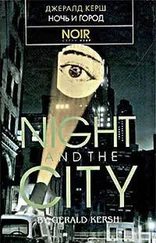“Ha,” I said. “Bad? A bad pound?”
“Yes, on his birthday. Coffee, sir?”
“No, no coffee. On his birthday, eh?” Before I paid the bill I held a pound-note up to the light. “Will you look the other way while I steal Gino’s spoon?” I asked.
“Take! I give!” said the waiter, looking sideways to be certain that the manager’s back was turned. “What is it? You see something?”
“I never passed a bad note before,” I said. “Keep the change.” The waiter laughed and I, having shaken hands with him, went to catch my train.
Certain others I know, in my position, sir, have had “severe nervous breakdowns”—gone out of their minds—took to parading the streets with banners, and what not, shouting Unfair! Well, thank God, I was always steady minded. I could always see the other side of things. So, although I really was unjustly dismissed from the force, I could still keep my balance. I could see the reason for the injustice behind my dismissal, and could get around to blaming myself for not keeping my silly mouth shut.
Actually, you know, I wasn’t really sacked. I was told that if I wanted to keep what there was of my pension, I had better resign on grounds of ill health. So I did, and serve me right. I should never have made my statement without first having my evidence corroborated. However, no bitterness—that ends badly, mark my words. Justifiable or unjustifiable, bitterness leads to prejudice which, carried far enough, is the same thing as madness. . . . I started life in the Army, d’you see, where you learn to digest a bit of injustice here and there; because if you don’t it gets you down and you go doolally.
If I had been thirty years wiser, thirty years ago, I might have been retired, now, on an inspector’s pension. Only, in the matter of an open verdict, I didn’t have the sense to say nothing. I was young and foolish, d’you see, and therefore over-eager. There was a girl I was very keen on and I was anxious to better myself—d’you see?
I was supposed to be an intelligent officer, as far as that goes in the police force. But that isn’t quite good enough. In those days all the so-called intelligence in the world wouldn’t get a policeman very far—seniority aside—unless he had a kind of spectacular way of showing it.
I’m not embittered, mind you. Nothing against the force. Only I ought to have known when to stop.
At first, like everybody else, I thought nothing of. it. The police were called in after the doctor, merely as a matter of routine, d’you see. I was on a beat, then, in Hammersmith. Toward about eight o’clock one Sunday morning, neighbors on either side of a little house in Spindleberry Road were disturbed by the hysterical crying of a child at Number Nine.
At first there was some talk of the N.S.P.C.C., but there was no question of that, because the people at Number Nine were, simply, a little orphan girl, aged eight, and her aunt, Miss Pantile, who thought the world of her niece and, far from ill-treating the child, had a tendency to spoil her; because the little girl, whose name was Titania, was delicate, having had rheumatic fever.
As is not uncommon, the houses in Spindleberry Road are numbered odd coming up, and even going down. The neighbors in question, therefore, were Numbers Seven and Eleven. Spindleberry Road, like so many of them put up around Brook Green before the turn of the century, is simply a double row of brick barracks, sort of sectionalized and numbered. Under each number, a porch. In front of each porch, iron railings and an iron gate. At the back of each house, a bit of garden: they are accessible from front or back only.
Beg pardon—I’ve never quite lost the habit of making everything I say a kind of report. . . . Well, hearing child crying, neighbors knock at door. No answer. Number Seven shouts through letter-box, “Open the door and let us in, Titania!” Child keeps on crying. Various neighbors try windows, but every window is locked from the inside. At last, Number Eleven, a retired captain of the mercantile marine, in the presence of witnesses, bursts in the back door. Meanwhile, one of the lady neighbors has come to get a policeman, and has found me at the corner of Rowan Road. I appear on the scene.
Not to bother you, sir, with the formalities; being within my rights, as I see them in this case, I go in, having whistled for another policeman who happens to be my sergeant. The house is in no way disturbed, but all the time, upstairs, this child is screaming as if she is being murdered, over and over again: “Auntie Lily’s dead! Auntie Lily’s dead!”
The bedroom is locked on the inside. Sergeant and I force the lock, and there comes out at us a terrified little golden-headed girl, frightened out of her wits. The woman from Number Eleven soothes her as best she can, but the sergeant and I concentrate our attention upon Miss Lily Pantile, who is lying on a bed with her eyes and mouth wide open, stone dead.
The local doctor was called, of course, and he said that, as far as he could tell, this poor old maiden lady had died of something like a cerebral hemorrhage at about three o’clock in the morning. On a superficial examination this was as far as he cared to commit himself. He suggested that this was a matter for the coroner.
And that, as far as everybody was concerned, was that, d’you see. Only it was not. At the inquest it appeared that poor Miss Pantile had met her death through a most unusual injury. A gold-eyed crewel needle had been driven through her skull, and into her brain, about three inches above the left ear!
Now here, if you like, was a mystery with a capital M.
Miss Pantile lived alone with her eight-year-old niece. She had enough money of her own to support them both, but sometimes made a little extra by crewel work—you know, embroidering with silks on a canvas background. She was especially good at creweling roses for cushion covers. The needle she favored—she had packets and packets of them—was the Cumberland Crewel Gold Eye, one of which had found its way, nobody knew how, through her skull and into her brain. But how?—that was the question.
There was no lack of conjecture, you may be sure. Doctors cited dozens of instances of women—tailoresses and dressmakers, particularly—who had suddenly fallen dead through having needles embedded in various vital organs. Involuntary muscular contractions, it was demonstrated, could easily send an accidentally stuck in needle, or portion of a needle, working its way between the muscles for extraordinary distances, until it reached, for example, the heart. . . .
The coroner was inclined to accept this as a solution, and declare a verdict of death by misadventure. Only the doctor wouldn’t have that. Such cases, he said, had come to his attention, especially in the East End of London; and, in every case, the needle extracted had been in a certain way corroded, or calcified, as the case might be. In the case of Miss Lily Pantile, the crewel needle—upon the evidence of a noted pathologist —had been driven into the skull from the outside , with superhuman force. Part of the gold eye of the needle had been found protruding from the deceased’s scalp. . . . What did the coroner make of that? the doctor asked.
The coroner was not anxious to make anything of it.
In the opinion of the doctor, could an able-bodied man have driven a needle through a human skull with his fingers?
Definitely, no.
Might this needle, then, have been driven into Miss Pantile’s skull with some instrument, such as a hammer?
Possibly; but only by someone of “preternatural skill” in the use of instruments of exceptional delicacy. . . .
The doctor reminded the coroner that even experienced needlewomen frequently broke far heavier needles than this gold-headed crewel needle, working with cloth of close texture. The human skull, the doctor said—calling the coroner, with his forensic experience, to witness—was a most remarkably difficult thing to penetrate, even with a specially designed instrument like a trephine.
Читать дальше






